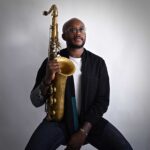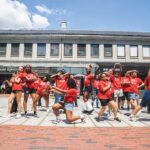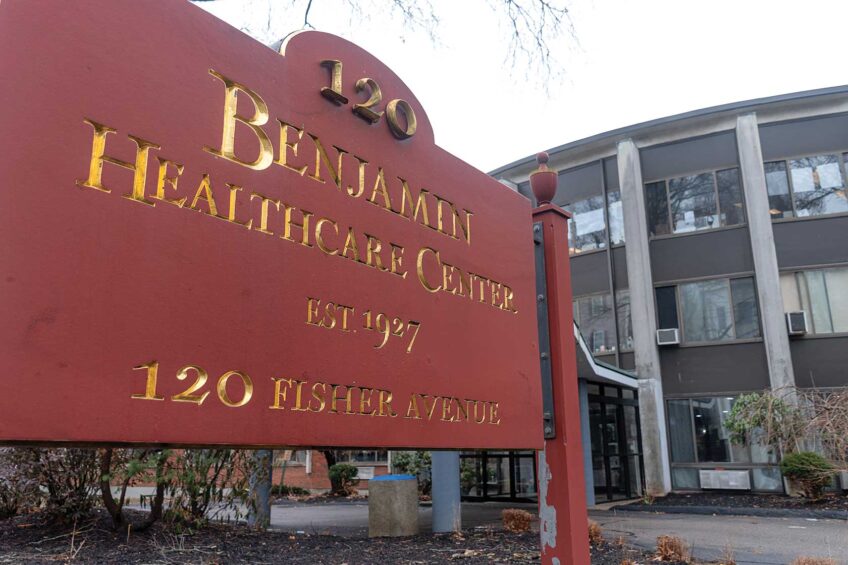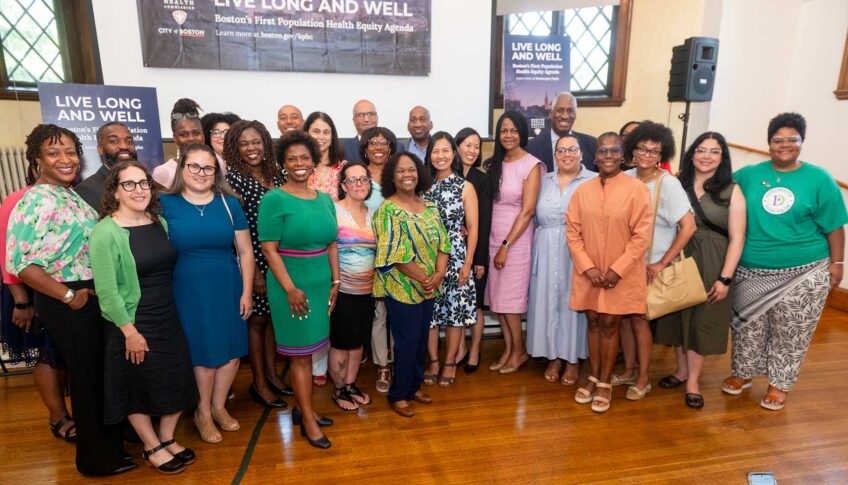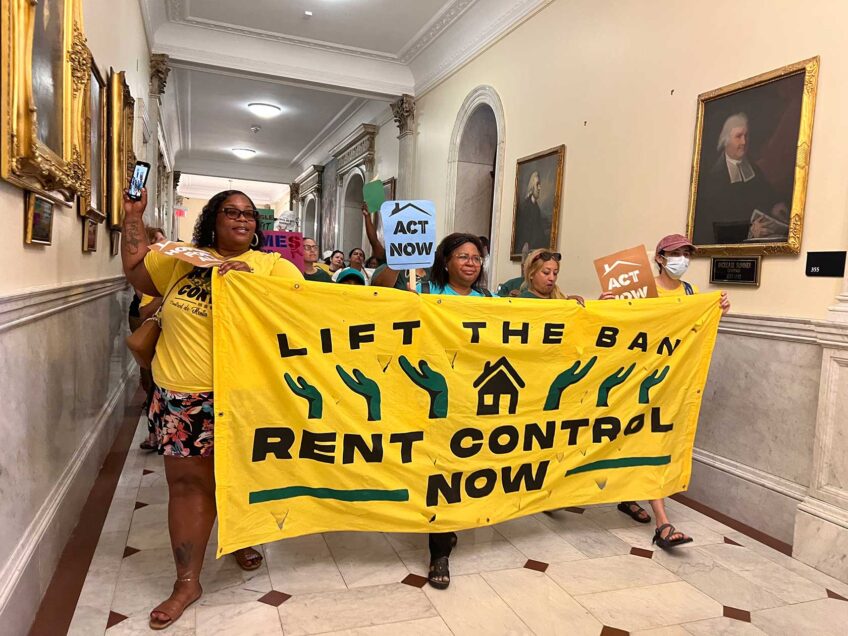Boston students protest state’s COVID policies
Call for remote learning, improved personal protections
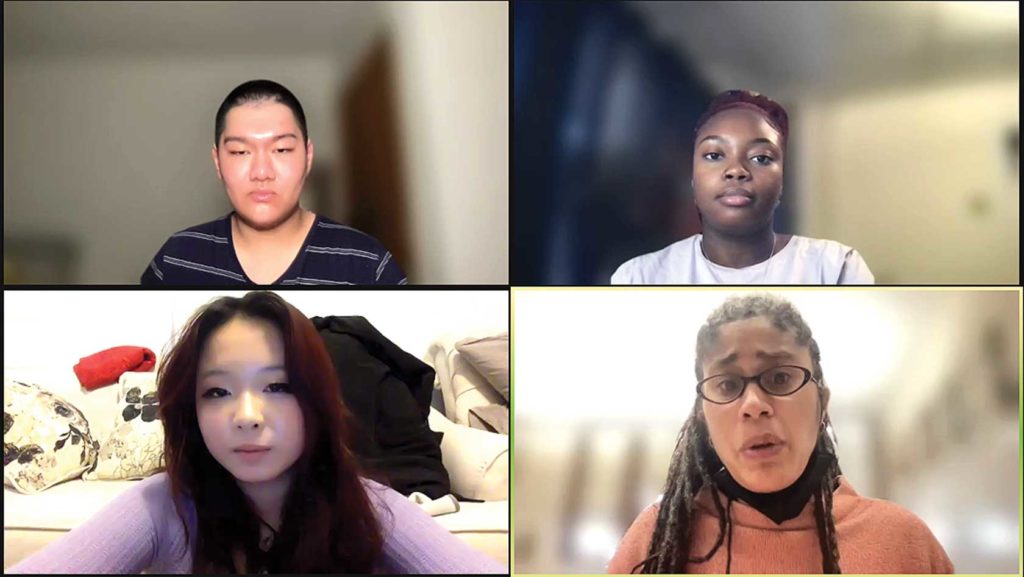
Scores of Boston Public Schools students walked out of class last Friday in protest of the district and state’s response to the surge in COVID cases that has seen nearly 3,000 students and staff infected between the end of winter break and Jan. 12.
The 2,957 cases reported in that period make up more than half of the 5,270 cases reported so far this school year in BPS schools.
The student organizers of the walkout issued a set of demands to city and state officials, including a two-week switch to remote learning. While local elected officials, including Mayor Michelle Wu, expressed support for the students, the state’s Department of Elementary and Secondary Education (DESE) did not respond to the students’ demands.
“So far, we haven’t heard from the state,” said Henderson Inclusion School Senior Xyra Mercer in an interview with the Banner. “I think it shows the lack of care they have for students.”
The student demands call on the state to count remote learning toward the 180 days students are required to be in class and call on state and district leaders to ensure students have access to reliable internet service and school lunches during time out of school. State Education Commissioner Jeff Riley has refused to count remote learning toward the 180 days of required instruction.
In addition to the two-week period of remote learning, the students want the state to provide reliable personal protective equipment (PPE) for teachers and proper COVID testing for teachers and students. In recent weeks, DESE has distributed non-medical grade masks and expired COVID test kits to schools across the state.
The students are also calling for the state to improve pool testing for BPS schools, for school leaders to enforce masking in schools, and for other improvements to contact tracing, quarantine guidelines and other safety measures.
The students want standardized tests cancelled as well.
Mercer, the student representative who sits on the Boston School Committee, sees the recent Omicron surge as a threat not just to her own health, but to that of her family members. She lives with her elderly grandparents and a cousin who suffers from asthma. Attending a school that had 15 cases in the last week poses a risk, Mercer said.
“I’m putting my whole family at risk,” she told the Banner.
Students and teachers who spoke during a Zoom meeting organized by the walkout leaders said they wanted instruction to remain in person but felt the state and the district have not put in place appropriate safety measures.
“The whole time that I’ve been in the building since coming back, it’s been this dual feeling of the gratitude and happiness of seeing each other, but with this background terror of knowing that the situation that we’re walking into is not what we were promised, and the situation that we walked into is not the situation students deserve,” said Mary Dibinga, a teacher at Boston Latin Academy.
“Are we willing to sacrifice the health of the community in an unrealistic pursuit of a sense of normalcy?” said Dearborn STEM Academy student Stacy Tran.
Boston Public Schools Superintendent Brenda Cassellius, who has asked Riley for flexibility on remote learning, wrote an email to BPS school leaders in support of the students’ walkout. The district also released a statement supporting the action.
“Boston Public Schools believes deeply in students advocating for what they believe in. We further believe it is critically important that we encourage and support them in expressing their concerns, beliefs and positions to their leaders,” the statement reads in part. “We will continue to listen to our students and families as we navigate this latest surge and the impacts it has on our ability to remain in person and deliver a quality education.”
A DESE spokeswoman did not respond to request for comment before the Banner’s press deadline.
State Rep. Nika Elugardo, who met with Riley to ask for flexibility on the remote learning ban when the Curley School closed due to a surge in COVID cases in November, said his refusal to budge demonstrates a fundamental problem with DESE.
“This is a perpetual problem that preexisted COVID,” she said. “DESE has a top-down, cookie-cutter approach, and they expect everyone to fall in line. They don’t listen. Teachers, students and administrators feel like they’re not heard.”
Mercer said many BPS schools may ultimately have to close due to staffing shortages. Students throughout the system have complained in recent weeks that they’re forced to double up in classrooms or sit through study halls because teachers are out sick and there are too few substitute teachers to take up the slack.
“The schools are half empty,” Mercer said. “When we came back from break, students and teachers were missing. It’s a weird and eerie feeling. It’s like you’re walking in a ghost town.”


